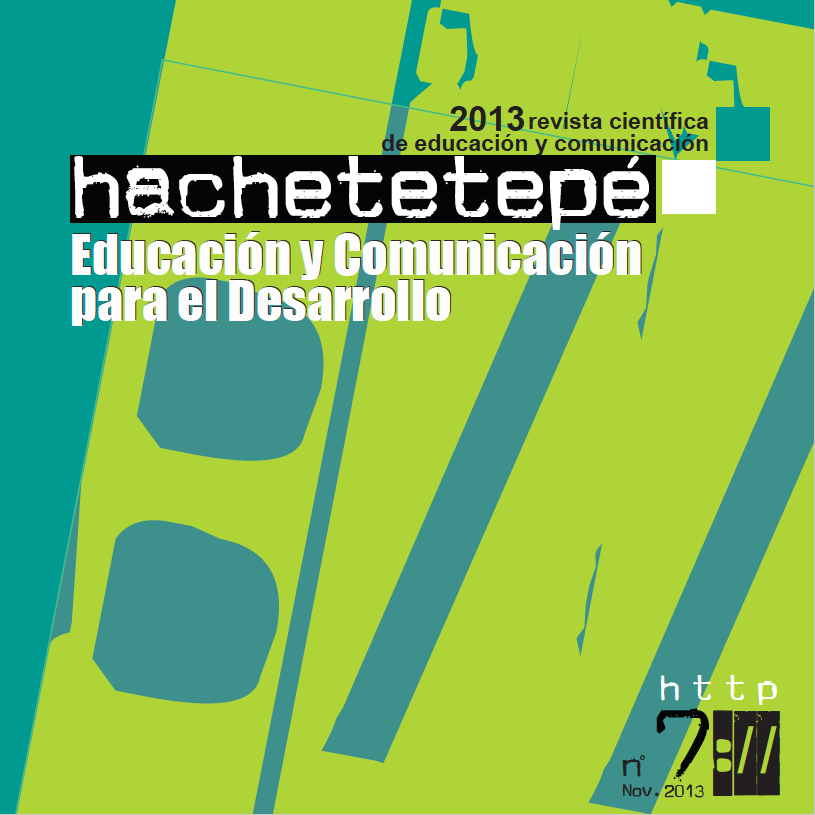Education for Development: How to Better Our Communication with Society

Info
Abstract
The objective of this text is to propose certain elements that might help better communication within education development. We shall propose a more accessible and fun way to transmit messages and ideas. We shall propose to use visual methods, making good use of new technologies and clear concepts to capture the attention of all members of society, that is, to reach a wider audience. To communicate in a more direct fashion does not mean that we are not selective. In this respect, we shall make good use of empirical methods and reliable information sources before implementing a communication campaign.
Keywords
Downloads
How to Cite
License

This work is licensed under a Creative Commons Attribution-NonCommercial-NoDerivatives 4.0 International License.
Those authors who have published with this journal, accept the following terms:
- They will retain their copyright and guarantee the journal the right to first publication of their work, which will simultaneously be subject to the Creative Commons Attribution License . They may be copied, used, disseminated, transmitted and publicly displayed, provided that the authorship, url, and magazine are cited, and are not used for commercial purposes. No derivative works are allowed.
- They may adopt other non-exclusive license agreements for the distribution of the published version of the work (e.g., deposit it in an institutional telematic archive or publish it in a monographic volume) provided that the initial publication in this journal is indicated.
- Disseminate your work through the Internet (e.g., in institutional telematic archives or on your website) once the manuscript is accepted, which may lead to interesting exchanges and increased citations of the published work. (See The effect of open access).
Hachetetepé. Scientific journal of education and communication does not charge a fee for the submission of manuscripts or for the publication of its articles.
References
Andreu, J. (2003). “Investigación Sociológica en Internet”, Revista de Investigación Aplicada Social y Política, Ilustre Colegio Andaluz de Doctores y Licenciados en Ciencias Políticas y Sociología; 132-140.
Arroyo, L. (2013). Frases como puños. El lenguaje y las ideas progresistas. Barcelona: Editorial Edhasa.
Baillargeon, N. (2007). Curso de Autodefensa Intelectual. Barcelona: Ares y Mares.
Bauman, Z. (2012). “Entrevista” en El País, publicada el 19 de agosto de 2012.
Lidwell, W., Hiddern K. y Butler J. (2005). Principios universales de diseño, Madrid: Editorial Blume.
Llaneras, K. (2013). “Una política basada en la evidencia”, Politikon. En: http://politikon.es/2013/05/26/por-una-politica-basada-en-la-evidencia/(Consultada el 31 de mayo de 2013)
Macionis, J. y Plummer, K. (2007). Sociología. Madrid: Pearson Educación.

